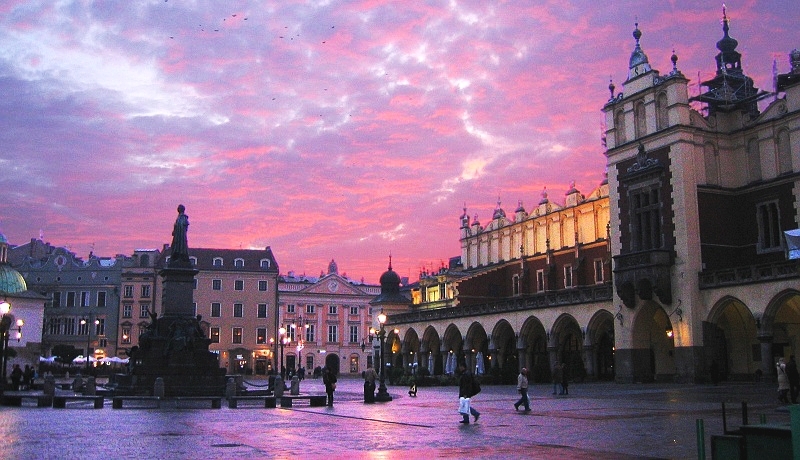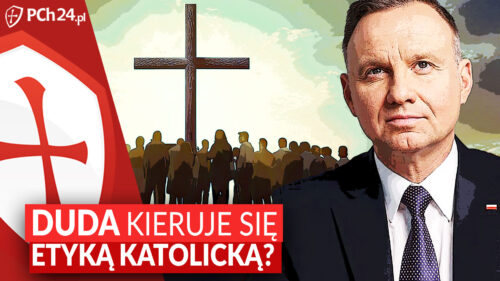Population forecasts for Poland herald an approaching catastrophe. The society will be getting older, the number of births will not ensure the generation renewal, so our population will constantly decrease. Although it seems to be a distant perspective, it is worth realising that decisions of current generations are of key importance. If demographic tendencies in Poland continue, the number of Poles may drop by up to 5 million in 30 years. What next?
“Since the end of World War II there has been no year in which so many Poles died. The number of deaths as big as last year’s figure was predicted by the Central Statistical Office [GUS] only in 2032”, alarmed Dziennik Gazeta Prawna. These are the GUS’s data concerning deaths for the year 2018, which indicate that as many as 414 thousand Polish citizens passed away at that time. It is sufficient to say that the number of births failed to compensate for these losses. What fate awaits Polish society, then? Are we doomed to die out slowly? The statistical data are far from optimistic. However, it is important to draw important conclusions from them. If we want to avoid the demographic collapse in 2050, we must act already today.
Wesprzyj nas już teraz!
The forecast as the last warning
According to “Population forecasts by sex and age” of the GUS (data as on the end of 2018), Poland will be affected not only by depopulation, but also by ageing. While the number of Poles should slightly exceed 38 million in 2020, it will be 1 million smaller in 2030, will decrease to around 35.6 million in 2040 and to less than 34 million in 2050!
The age structure of the society will also change significantly during that time. The number of young and middle-aged people will decrease, and the number of elderly people will increase. For example, the number of persons aged below 18 will fall from the current level of 6.8 million to 4.9 million in 2050. The number of people in the age group 18-44 years will also shrink – from the current level of around 15 million to 9.3 million. There will be fewer people aged under 60, too (decrease from 7.8 million to 5.9 million). On the other hand, the number of elderly people (aged over 65) will rise. Today there are around 7 million of them. In 2050, this group of society will amount to over 11 million. It can clearly be seen that the age structure of society will change significantly – statistically speaking, we will get older as a nation.
Obviously, this ageing of society is also a result of longer life. At the beginning of the 21st century, Poles lived shorter than today (the life expectancy was almost 70 years in men and 78 years in women). Today the life expectancy (according to the GUS’s data from the years 1970-2017) is almost 74 years for men and almost 82 years for women. Interestingly enough, recent data show that the increase in the length of life among Poles (after its relatively rapid increase until 2010) has slightly slowed down in the last few years. Specialists believe that this is a result of Poles’ inadequate approach to the issue of health – poor prevention, avoidance of visits to doctors, non-compliance with their recommendations, unhealthy life style and addictions.
All of these things contributed to this year’s record death rate among Poles (414,000 deaths). For the sake of order, it is necessary to add that the number of deaths in Poland was 368,000 in 2000 and 378,500 in 2010. In 2017, 402,900 people died.
These results must also be juxtaposed with births. At the turn of the century, a total of 380,000 children were born per annum. One decade later, this number reached 415,000, in 2016 – 383,000, in 2017 – 403,000 (According to GUS “Births”). In 2018, the expected level was 388,000 (preliminary data)
Ageing
What does the term “ageing society” mean in practice? Here it is worth looking at the GUS’s data concerning the “median age” of population. In 2000, this age was 35.4 years, in 2010 – as many as 38 years, in 2017 – 40.6 years. What level may the median age of population reach in the future?
Our estimated calculations were based on the GUS’s population forecasts till 2050 and their data concerning the age structure of society. We came up with the result indicating that the “median age” of population would reach almost 41 years in 2020, which corresponds to the GUS’s real data for the year 2017. Going further, we calculated that the estimated “median age” of population in Poland may reach even 47 years in 2050!
Population vs. the value of life
The quoted data and estimates only confirm that Poles are facing an important demographic challenge. In order to maintain their identity, today’s generations must assume responsibility for the growth of Polish population. The PiS’s government noticed that problem and launched the 500+ scheme, but it has become a means to overcome poverty rather than an incentive for procreation for families. How will this scheme affect Poles’ behaviours in the years to come? Time will tell.
However, we already know that we must wait some time for the results, so demographic shortages will be supplemented with immigrants. This is included in the government’s plan for Poland. We wrote more about this in the text: “The government will encourage us to share Poland with immigrants.”
Thinking about the future of Poland, we cannot ignore the problem of life protection. Currently we can see how the United Right-Wing group is sealing the “abortion compromise”. All pro-life initiatives have been effectively frozen. The election is approaching; on the one hand, we can observe the movements that are more radical than the ruling PiS party on the right side of the political scene and give hope for a better protection of human life and the appreciation of family. But on the other hand, there is the leftist-liberal movement whose leader openly declares that he will arrange “civilisational issues” for electors in the first place. This means the broader acceptance of abortion and the further relaxation of morality.
Let us not deceive ourselves: a political scenario that assumes the promotion of abortion, in vitro, same-sex relationships and the broader appreciation of animals (as compared to humans) will not reverse the current unfavourable demographic trends.
Therefore, if we are seriously concerned about Poland, we URGENTLY need a wise and responsible pro-family policy. Without such a policy, there will be no way of stopping the depopulation process.
Marcin Austyn

















